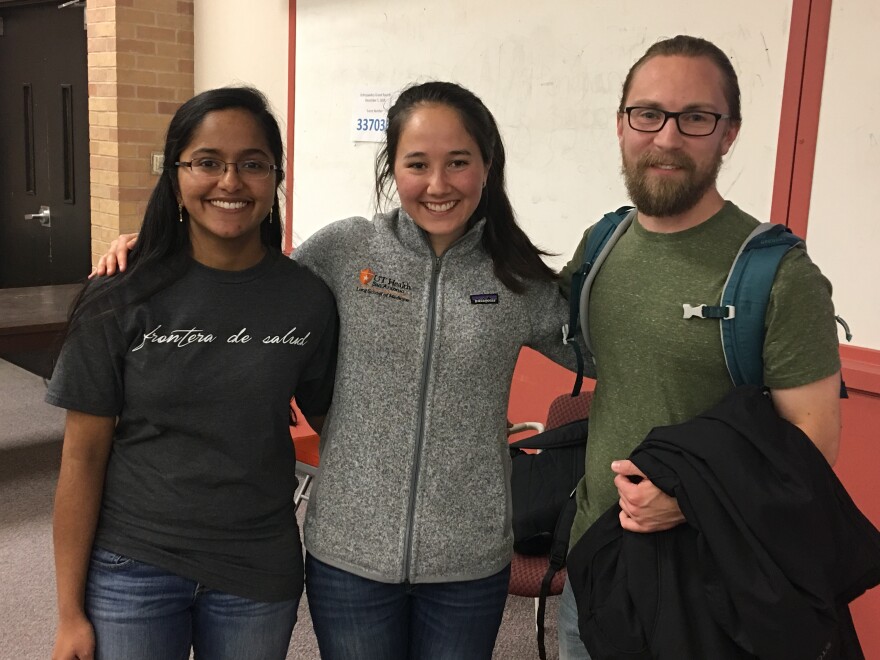Updated Dec. 12
Advocates for detained migrants in Texas met San Antonio medical students to discuss forming future partnerships that could help improve the health and well-being of people hoping to immigrate to the U.S.
Nimmy Thomas, a second-year medical student at UT Health San Antonio, is an immigrant. She came to the U.S. from India when she was 10.

She attended a presentation in early December by the Refugee and Immigrant Center for Education and Legal Services about immigrants’ unique health concerns when in detention or living in the community.
"This is a community that I would be very privileged and honored to work in because, as an immigrant myself, I understand I came from an immigration progress that was much easier, and I had a family and a sponsor who supported me through that,” Thomas said. “And some of these immigrant families don't have that."
TheCenter for Medical Humanities and Ethics reached out to RAICES, volunteer programs manager Geovanie Ordoñez said.
"I think that's the next step, as a community is really seeing us have strong referral systems in place and resources that we can offer to undocumented families and mixed-status families undocumented children, refugees, and asylum seekers," Ordoñez said.
Second-year medical students Jordan McMaster and Olivia Lopez both said they left the presentation with better understandings of how they can better help migrant families stay healthy. They said the event reminded them that being a good doctor involves more than just medicine.
"It's not just about the physiology. It's not just about the anatomy. It's not just about the health of the patient in front of me, but it's also about their social situation,” McMaster said. “It's about what they've got going on at home."
Lopez agreed, saying that’s particularly true in patients who’ve experienced trauma, which can have an impact on physical health.
"I think as doctors we have to be aware of everything that's going on in a patient's life, and about organizations like RAICES who can potentially help them with things outside our expertise," she said.
Thomas said doctors should understand because it is likely all doctors will one day have to care for patients in similar circumstances.
"I'm hopeful that myself and my colleagues understand this is a side of medicine that we will probably see in our rotations and into our careers so understanding the legal and the social aspects, beyond just the medical aspects," Thomas said.
That's the kind of response RAICES youth outreach coordinator Cassidy Fritts hoped for, and she thinks it will ultimately make a difference.
"Being able to start these conversations about what the needs are is very important," Fritts said.
Fritts hopes that one day these young doctors will not only become invaluable medical resources for underserved communities but will also help them overcome traditional barriers to health care.
Bonnie Petrie can be reached at bonnie@tpr.org or on Twitter @kbonniepetrie
CORRECTIONS: The names of Cassidy Fritts and Geovanie Ordoñez were misspelled, and the name of the Center for Medical Humanities and Ethics was incorrect. The headline has also been updated to better reflect the content of the article. TPR regrets the errors.






